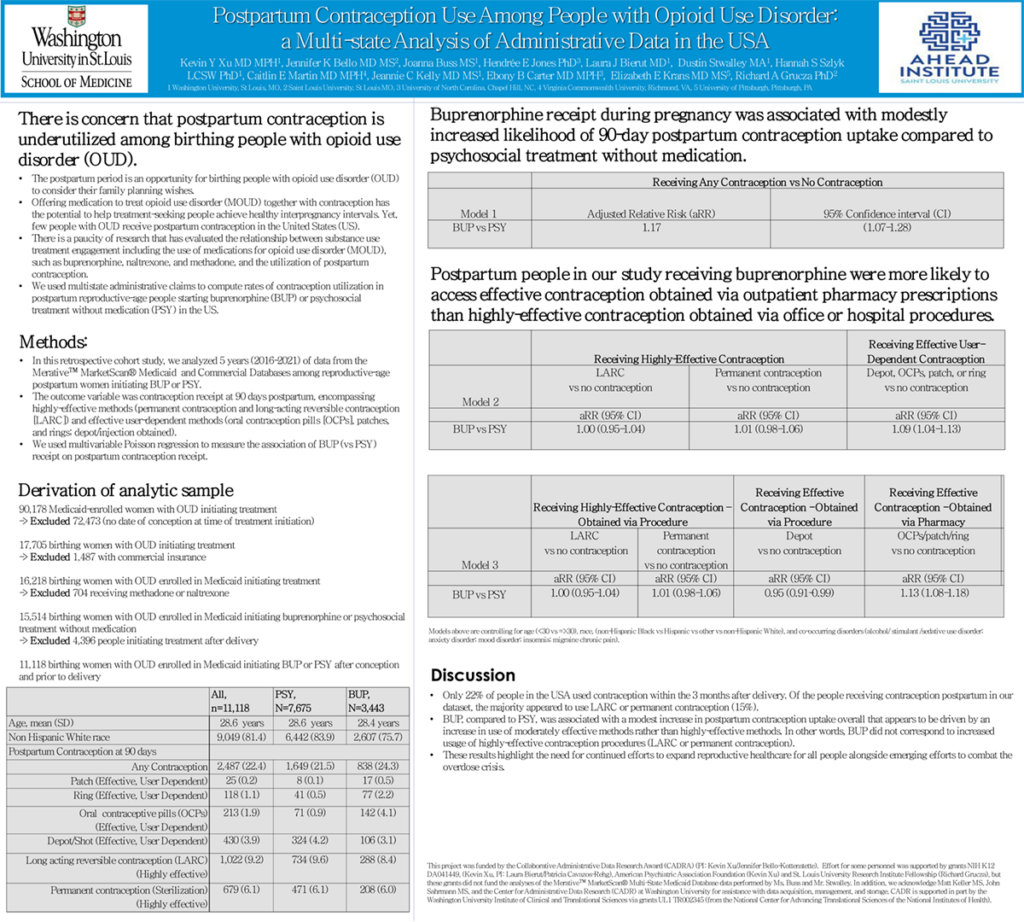
Introduction: Offering medication to treat opioid use disorder (MOUD) together with contraception has the potential to help treatment-seeking people achieve healthy interpregnancy intervals. We used multistate administrative claims to compute rates of contraception utilization in postpartum reproductive-age people starting buprenorphine (BUP) or psychosocial treatment without medication (PSY).
Methods: In this retrospective cohort study, we analyzed data from the Merative™ MarketScan® Commercial and Multi-State Medicaid Databases (2016-2021) among reproductive-age postpartum women initiating BUP or PSY. The outcome variable was contraception receipt at 90 days postpartum, ascertained via procedure codes and pharmacy files, encompassing highly-effective methods (permanent contraception and long-acting reversible contraception [LARC], obtained as procedures) and effective user-dependent methods (oral contraception pills [OCPs], patches, and rings obtained via pharmacies; depot/injection obtained via office procedures). We used adjusted multivariable Poisson regression models to measure the association of BUP (vs PSY) receipt on contraception utilization after delivery.
Results: Our sample consisted of 11,118 postpartum people initiating BUP or PSY. 2,487(22.4%) and 2,953 (26.6%) were prescribed contraception at 90 days postpartum respectively (9.2% LARC, 6.1% permanent contraception, 0.2% patch, 1.1% ring, 3.9% depot, 1.9% oral). Overall, compared to PSY, BUP receipt during pregnancy was associated with modestly increased likelihood of postpartum contraception uptake (aRR=1.17[1.07-1.28]). BUP was associated with increased uptake of effective user-dependent methods obtained as prescriptions (aRR=1.13[1.08-1.18]), with no relationship observed between BUP and highly-effective contraception procedural methods such as LARC and permanent contraception.
Impact: BUP receipt during pregnancy, relative to PSY, conferred an increase in user-dependent contraception uptake but was not associated with increases in contraception requiring office procedures. Contraceptive method preferences of women with OUD may differ by type of OUD treatment and should be taken into account by providers.
Organization: Washington University in St. Louis
Strober WA, Kallogjeri D, Piccirillo JF, Rohlfing ML